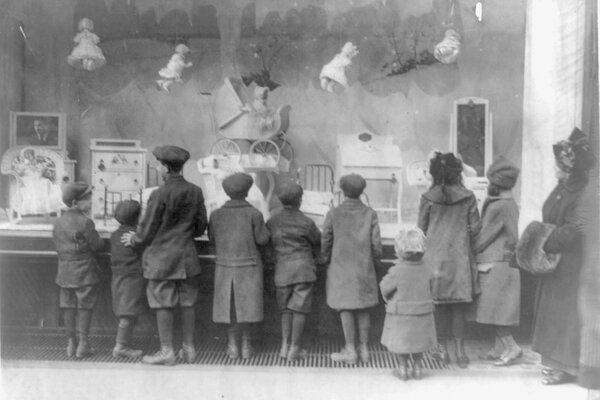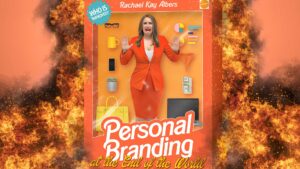Listen to the audio version. This essay is available as a podcast!
The rhetoric of "freedom" in the USA has long meant one thing - freedom to consume.
Freedom to buy into capitalist consumer culture.
Did you know that in the early 20th century, when companies started reducing work weeks to 5 days and 44 hours, they did it — not because they believed in human rights — but because they knew workers needed more time and just enough money to be able to buy all the items that were being mass produced?
This was part of a capitalist-led strategy to “consumerize the worker.”
In other words, before the Industrial Revolution, people weren’t used to buying all the time.
They were frugal and self-reliant.
The majority of the country lived rurally.
They made their own stuff. And if they bought something, they did it with someone they knew.
When factories started churning out products, the capitalists that owned them quickly realized they needed more people willing and able to buy all the time.
But most Americans worked long hours and had little money left over.
The language of “freedom” in the USA was leveraged by advertisers in terms of the freedom to buy whatever we wanted.

Folks like Edward Filene (yes, of Filene’s Basement — the place I read about in books growing up where apparently you had to change into your underwear in front of the whole store? This gave me nightmares. At least that was the lore?) worked with advertisers to create campaigns that made people more comfortable with buying — framing this as their way of participating in a “free” country.
In his defense of the shorter work week and higher wages, Filene said:
“Modern workmen have learned their habits of consumption and their habits of spending (thrift) in the school of fatigue, in a time when high prices and relatively low wages have made it necessary to spend all the energies of the body and mind in providing food, clothing, and shelter. We have no right to be overcritical of the way they spend a new freedom or a new prosperity, until they have had as long a training in the school of freedom.”
Today, we have a romantic view of how these rights were won by workers.
We want to believe that workers have been liberated solely through activism — and that is a big part of it.
But these legal wins were also big wins for capitalism.
When people are tired and broke, they don’t have enough energy or means to buy the widgets that make capitalists rich.
So, the reduced work day — and things like employee benefits — were used to get our collective buy-in to consumer culture.
We needed just enough leisure time to spend our money.
“Freedom” has been a sales pitch for America since the founding fathers used it to sell the Constitution, despite the origins of this country only affording freedom to rich, land-owning, white men.
In the first chapter of the book I’m writing, I originally referred to the founding fathers as little more than glorified copywriters.
They were selling a vision of “results” they knew they couldn’t deliver to all Americans.
My book development editor suggested I might ease off and give the founding fathers a bit more credit. (Don’t want to alienate all my readers in Chapter One. Probably sound advice.)
“WAIT, ARE YOU INTO AMERICA’S DADDIES?” I asked her. “Wait! Actually, don't tell me! IT’S PROBABLY BETTER THAT I DON’T KNOW!”

Today, we see buying, not actual autonomy, as the ultimate form of self-care. (Funny, that’s the name of one of my editor’s own books — she’s brilliant and so is the book. Just the exact type of funny you need for right before you cry yourself to sleep. I highly recommend.)
We have been effectively trained in the "School of Freedom."
We encourage each other to buy to "help the economy."
We “treat ourselves” to purses and mimosas to heal from the harms of our jobs.
Who needs bodily autonomy when we are “free” to choose our Sunday brunch spot or between 17 different types of Cheez-Its?!
But, we are only free in capitalist terms.
Am I being too hard on America’s daddies?
Listen, I’ve got daddy issues, in general, and that’s no secret. And I’m pretty pissed at the founding fathers today because apparently Justice Alito is using THEM as his excuse for stripping away women’s rights and deepening poverty.
“The inescapable conclusion is that a right to abortion is not deeply rooted in the Nation’s history and traditions,” his leaked opinion reads.
But what is our history? What are our traditions?
The Constitution says one thing, but I went to law school, where we learned that a law should be judged, not simply for what it says “on its face” i.e. in the literal verbiage, but also in how it is carried out and applied.
And The Constitution has been used to carry out colonization, genocide, slavery, and class warfare.
Some “traditions,” Alito.
“Freedom” has been a selling point all along to keep us invested in this system, but the reality of our “free” country is that its laws have historically been applied to ensure that the powerful and wealthy are the free ones.
Everyone else is free to buy whatever they’re selling.
We have “rights,” alright. The right to choose between 50 shades of beige for our buttery soft leggings, but not to be sovereign over our own bodies. Or even to select our own President — if the Electoral College has anything else to say about it.

Restricting abortion rights is about so much more than bodily autonomy. It’s about upholding and reinforcing capitalism.
And what’s wild about it is that even conservatives have been sold a talking point — they think they’re enshrining “family values” as God intended but the nuclear family as we know it has a specific purpose within this system.
- Romanticize the unpaid labor of women raising children and keeping a home as their God-given “duty” so they can be their breadwinner’s “helpmeet” and keep them as productive as possible. In this framework, only one type of work is valuable. The other type of work is “duty” and thus, society has no obligation to financially provide childcare support to families.
- Reinforce patriarchal forms of authority. The man is the head of the household. The woman serves and submits to him. And she teaches their children to value and obey the “productive” parent more than the caretaking parent. A woman’s role in the “traditional” family is to teach kids who’s boss, so they can one day enter the workforce and obey their boss as Mom obeyed Dad. Historically, relegating women to the home also kept them from organizing, working, and “interfering” with public life, shaping policies and work cultures towards equity.
- Maintain the divide between the rich and the poor. The powerful and wealthy have always had — and will continue to have — access to abortion. Today, 75% of people seeking abortions are low-income or live below the poverty line. Restricting abortion means the poor will stay poor, the rich will stay rich, and workers will only have enough time, money, or energy to continue buying back into the system — feeding the economy, but barely feeding themselves, with nothing left to organize and fight for their autonomy. It’s a feature, not a glitch. Who can vote, picket, or unionize when there are mouths to feed and only a few extra hours to rest before another day’s work?
As you think about what to do next — and there is oh so much to do — I encourage you to find the muckraker within.
If you are to consume anything, consume history voraciously.
If you buy more, buy more books. Read them. Share them. Learn the history and “traditions” of this country, as Alito urges in his opinion.
If you believe the founding fathers were more than glorified copywriters — if you believe they did envision a nation of freedom and justice for all, then you know that this decision dishonors them. Time to make it right.
If, you like me, are a cynic and feel that the Constitution was merely a grift to fuel a free market where capitalists run free and the rest of us have no choice but to buy in, then you know it’s time to divest from the lies of capitalism and fight for something much better than this.
Either way, it’s time to fight, not keep buying in.
Sources for this post include:
- Captains of Consciousness: Advertising and the Social Roots of Consumer Culture by Stuart Ewen
- Land of Desire: Merchants, Power, and the Rise of a New American Culture by William Leach
- Satisfaction Guaranteed: The Making of an American Mass Market by Susan Strasser
- The Origins of the Family, Private Property, and The State by Friedrich Engels
- Self Care by Leigh Stein
p.s. Sick of business newsletters that have all The Answers™? Well, I've got nothing but questions. For more marketing muckraking and brand strategy gone wild, sign up for my emails here:
If you liked this, read on:
In many ways, it seems easier to become a “personal brand” version of yourself than to be yourself. Brands are built on simplicity. A “good”…
Read More...Rebrand TOO MUCH to SO MUCH. Instead of saying, “She’s TOO MUCH,” say, “She’s SO MUCH.” You’re welcome. Lessons on burning it all down…
Read More...In 2021, I started a business / art experiment called FREE SCHOOL. I didn’t know at the time that this school would teach me to free myself. What happens after you burn it all down?
Read More...

